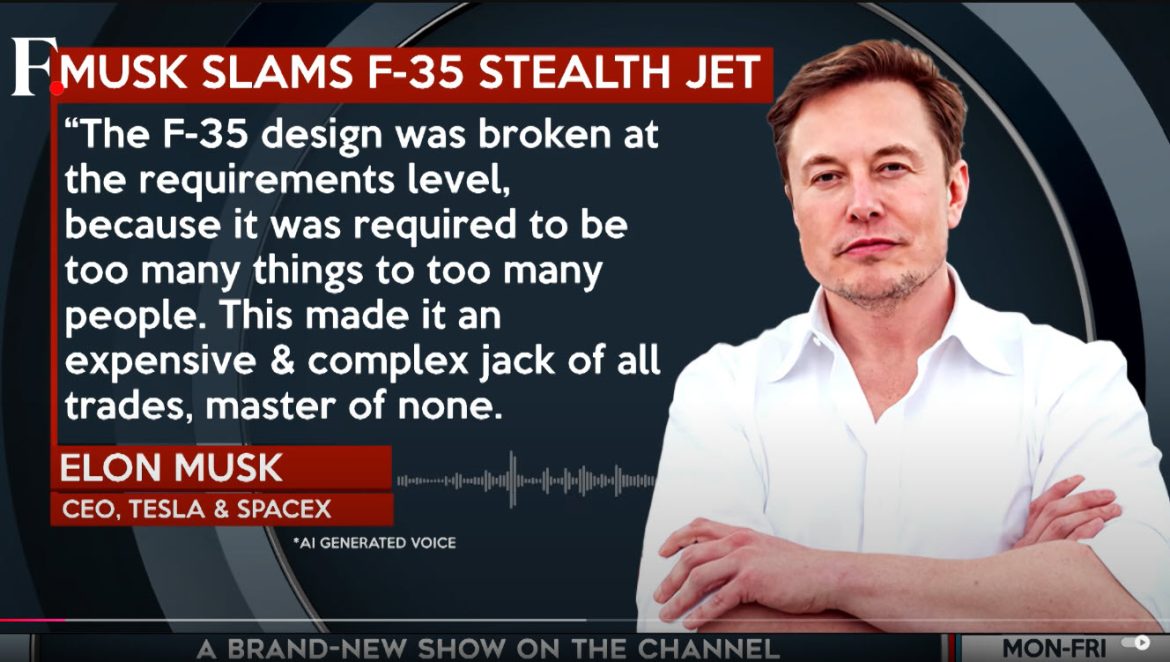Tesla and SpaceX CEO Elon Musk stirs controversy by declaring the F-35 stealth fighter jet obsolete, claiming that the future of warfare lies in autonomous drones. Posting on his social media platform X, Musk criticizes the F-35’s design and utility, describing it as ill-suited for modern combat scenarios. The comments ignite heated debates among defense experts, military personnel, and technologists.
Musk asserts that the era of manned fighter jets is coming to an end, as drones increasingly dominate the battlefield. He argues that drones, powered by artificial intelligence and advanced remote control systems, offer unparalleled precision, flexibility, and cost-efficiency compared to traditional fighter aircraft. Musk contends that future conflicts will rely on swarms of unmanned aerial vehicles (UAVs) that can outmaneuver and outperform even the most advanced piloted jets.
The F-35, developed by Lockheed Martin, is the backbone of American and NATO air power and is widely considered one of the most advanced fighter jets in the world. Its stealth capabilities, advanced avionics, and multi-role versatility have made it a critical asset in military operations, including combat missions conducted by Israel against Iranian targets. Despite its technological prowess, the F-35 has faced criticism over its high production costs, maintenance challenges, and operational reliability.
Musk’s remarks are met with mixed reactions. Supporters of his view argue that the development of autonomous systems and advancements in drone technology are revolutionizing military strategy. They point to recent drone-centric conflicts, such as those in Ukraine and Armenia-Azerbaijan, as evidence of a paradigm shift in modern warfare. Critics, however, accuse Musk of oversimplifying the complexities of military technology and strategy. They emphasize that the F-35’s capabilities, including its ability to integrate seamlessly with NATO’s defense systems, provide an edge over adversaries like Russia and China.
Defense experts caution that while drones offer numerous advantages, they are not a complete replacement for manned aircraft. The F-35’s ability to adapt to diverse combat scenarios, evade sophisticated radar systems, and execute missions requiring human decision-making remains unmatched by current drone technology. Additionally, the reliance on AI-driven systems raises ethical and cybersecurity concerns, including the potential for hacking and misuse.
Musk’s comments also fuel speculation about his potential involvement in defense-related technology. As the head of SpaceX, Musk already collaborates with the U.S. military on space-based systems and satellite communications, such as the Starlink network, which has been critical in supporting Ukrainian forces. His emphasis on drones and AI could hint at future ventures aimed at reshaping the defense industry.
The debate over the F-35 and the future of warfare underscores broader questions about the role of emerging technologies in reshaping global security dynamics. As nations invest heavily in both manned and unmanned systems, the balance between traditional and futuristic military assets remains a contentious issue.



